

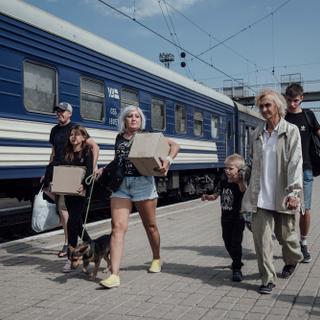
As Russians approach, Donbas town of Pokrovsk transforms into military camp
FeatureAs the front line draws closer, the residents of the small town in eastern Ukraine are forced to evacuate, leaving their entire lives behind.
As Russian missiles fly overhead, the corridors and rooms of Pokrovsk hospital in the Donetsk region are empty. The patients have been transferred to Dnipro or elsewhere in Ukraine, and the last surgeon, so sad and idle, refused to speak. In front of the emergency entrance, two nurses confirmed on Sunday, September 1, that "it's over, it's the last day of the evacuation" from the central regional hospital. By evening, they too had left.
In the city center, in front of what used to be the depressing Druzhba Hotel and the residential buildings bombed the night before – after having already been bombed a year ago – rescuers were searching the rubble for any missing persons that no one has reported.
At the Pokrovsk market, surprisingly lively despite the presence of the Russian army a few kilometers from the city, vendors sold bread, fruit and canned goods to soldiers who, unlike civilians, are unable to evacuate the city. They took advantage of the stalls that were still open to stock up on supplies.
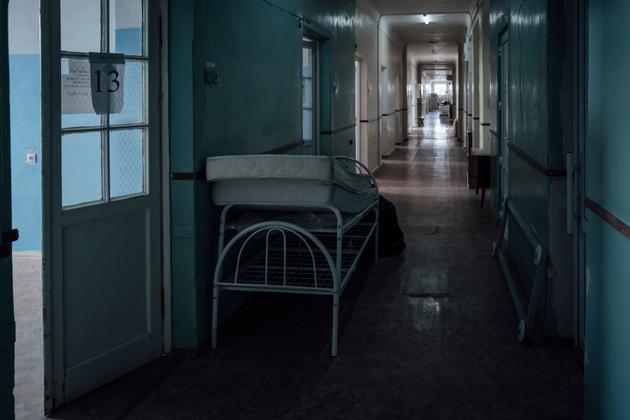
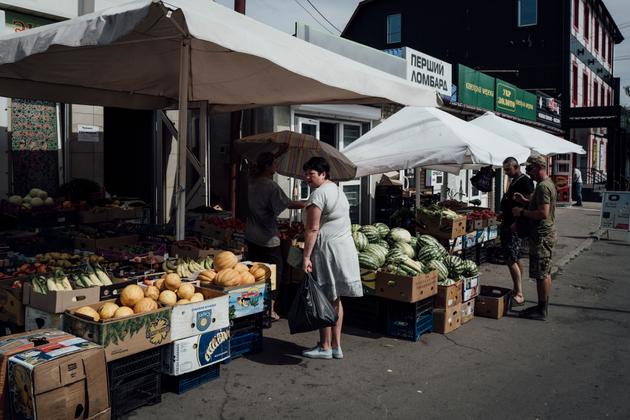
'I'll be back after the war'
Pokrovsk police patrolled the streets, reminding residents of the evacuation order announced on August 19 by the governor of the Donetsk region. The order was broadcast over loudspeakers, while officers went door-to-door. In reality, as in other Donbas towns previously taken by the Russian army, the authorities are not forcing anyone to leave. Only families with children are encouraged to seek safety, with daily visits from the police. The rest are free to do as they please, at their own risk.
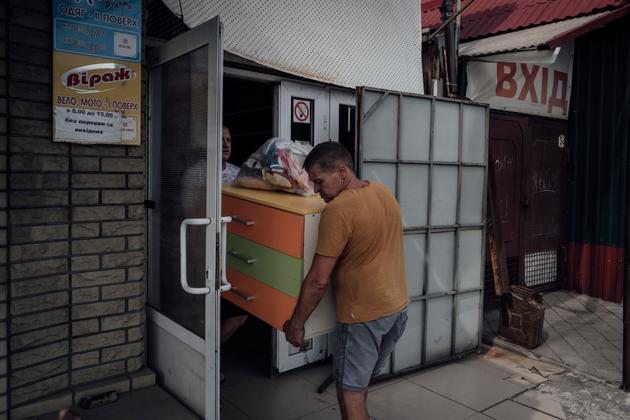
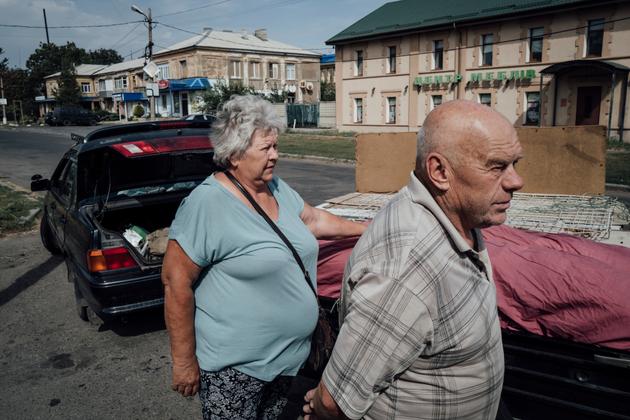
At the evacuation center set up in a local school, Svetlana (those interviewed did not wish to give their names) had just checked in to catch the daily evacuation train. She is leaving "for Lviv, then for Germany," with a heavy heart. "This is my home, this is Ukraine, but it's impossible to live under Russian occupation. I'll be back after the war."
Svetlana confirmed that, as in other Donbas towns that have been seized, some will stay behind. These are either people who are too old to move, or those who have no family elsewhere, or what Ukrainians call "those who are waiting" – those who, in some cases, are hoping for the arrival of the Russian army. As always, they are estimated at around 10% of the population. They are often elderly, nostalgic for the Soviet Union. "A colleague from the municipality," said Svetlana, "said to me the other day, as we were cleaning the street near the Druzhba: 'So, you're leaving too? You're a traitor to Russia!' There aren't many of them..."
You have 55.05% of this article left to read. The rest is for subscribers only.
